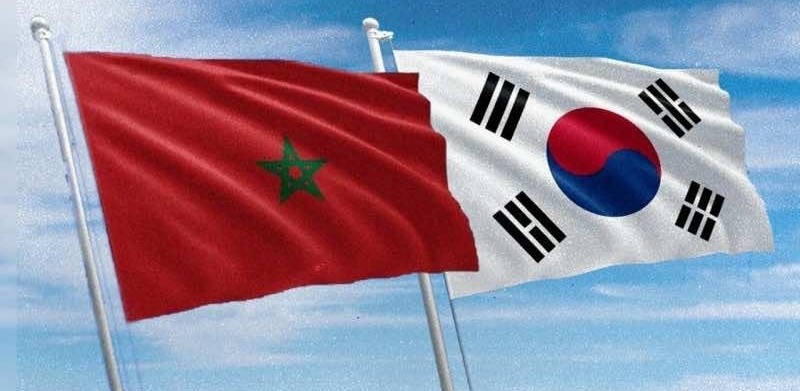(3 Minutes Read)
The South Korean Government lists Morocco as a key African target in its new trade policy roadmap, unveiled recently at a ministerial meeting chaired by Prime Minister Han Duck-soo. This is mainly due to Morocco’s significant resources and growth potential.
South Korea’s new trade policy includes expanding trade agreements to 77 countries, representing 90% of global GDP, to support South Korean businesses in emerging markets. The South Korean government revealed on its website, in a detailed press release reviewed by Hespress, that it is set to create a trade belt in South West Asia and Africa. It plans to establish cooperation with Africa mainly through similar agreements with Morocco and Tanzania.
The new South Korean roadmap emphasized boosting cooperation and ties with countries in the Global South, especially in Central Asia and Africa, viewing these regions as “strategic hubs and key areas for diversifying Korean exports. It also aims to strengthen economic and industrial partnerships through multilateral platforms, such as the Korea-Africa Summit. As a major player in global trade, Korea aims to boost its role in discussions on reforming the World Trade Organization and enhancing economic integration in the Asia-Pacific region.
Read Also:
https://trendsnafrica.com/south-korea-africa-summit-nearly-50-business-deals-signed/
https://trendsnafrica.com/morocco-and-south-korea-gearing-up-to-strengthen-bilateral-economic-ties/
South Korea’s current network of free trade agreements covers 85% of global GDP, making it the second largest in the world after Singapore, which covers about 88%.
The negotiations for free trade agreements with Brazil, Argentina, Uruguay, and Paraguay have been stalled. In this context, South Korean officials have shown a keen interest in signing free trade agreements with economically significant countries, with Morocco being a top priority.
Economic experts previously confirmed to Hespress that the South Korean government is leveraging Morocco’s strategic position, its deep ties in Africa, and its trade relationships to break into new markets and establish a presence for Korean companies on the continent.





